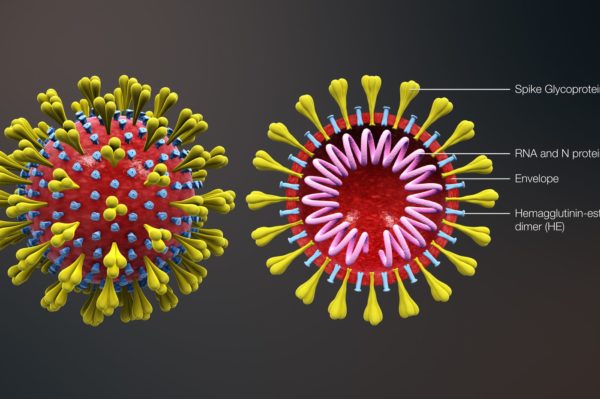- While shown to be effective in the lab environment, Ivermectin cannot be used in humans for COVID-19 until further testing and clinical trials have been completed to confirm the effectiveness of the drug at levels safe for human dosing.
- For any medical questions you have about your health, please consult your health care provider.
- The potential use of Ivermectin to combat COVID-19 remains unproven, and depends on pre-clinical testing and clinical trials to progress the work.
- A Monash University-led study has shown that an anti-parasitic drug already available around the world can “kill” the virus within 48 hours in cell culture.
- Scientists showed that a single dose of the drug, Ivermectin, could stop the SARS-CoV-2 virus growing in cell culture.
- The next steps are to determine the correct human dosage – ensuring the doses shown to effectively treat the virus in vitro are safe for humans.
- The use of Ivermectin to combat COVID-19 depends on pre-clinical testing and clinical trials, with funding urgently required to progress the work.
- Ivermectin is an FDA-approved anti-parasitic drug that has also been shown to be effective in vitro against a broad range of viruses including HIV, Dengue, Influenza and Zika virus.
- This Monash University-led collaborative study was published in Antiviral Research, a peer-reviewed medical journal published by Elsevier.

A collaborative study led by the Monash Biomedicine Discovery Institute (BDI) with the Peter Doherty Institute of Infection and Immunity (Doherty Institute), a joint venture of the University of Melbourne and Royal Melbourne Hospital, has shown that an anti-parasitic drug already available around the world kills the virus within 48 hours.
The Monash Biomedicine Discovery Institute’s Dr. Kylie Wagstaff, who led the study, said the scientists showed that the drug, Ivermectin, stopped the SARS-CoV-2 virus growing in cell culture within 48 hours.
“We found that even a single dose could essentially remove all viral RNA by 48 hours and that even at 24 hours there was a really significant reduction in it,” Dr. Wagstaff said.
Ivermectin is an FDA-approved anti-parasitic drug that has also been shown to be effective in vitroagainst a broad range of viruses including HIV, Dengue, Influenza and Zika virus.
Dr. Wagstaff cautioned that the tests conducted in the study were in vitro and that trials needed to be carried out in people.
“Ivermectin is very widely used and seen as a safe drug. We need to figure out now whether the dosage you can use it at in humans will be effective – that’s the next step,” Dr. Wagstaff said.
“In times when we’re having a global pandemic and there isn’t an approved treatment, if we had a compound that was already available around the world then that might help people sooner. Realistically it’s going to be a while before a vaccine is broadly available.
Although the mechanism by which Ivermectin works on the virus is not known, it is likely, based on its action in other viruses, that it works to stop the virus ‘dampening down’ the host cells’ ability to clear it, Dr. Wagstaff said.
Royal Melbourne Hospital’s Dr. Leon Caly, a Senior Medical Scientist at the Victorian Infectious Diseases Reference Laboratory (VIDRL) at the Doherty Institute where the experiments with live coronavirus were conducted, is the study’s first author.
“As the virologist who was part of the team who were first to isolate and share SARS-COV2 outside of China in January 2020, I am excited about the prospect of Ivermectin being used as a potential drug against COVID-19,” Dr. Caly said.
Dr. Wagstaff made a previous breakthrough finding on Ivermectin in 2012 when she identified the drug and its antiviral activity with Monash Biomedicine Discovery Institute’s Professor David Jans, also an author on this paper. Professor Jans and his team have been researching Ivermectin for more than 10 years with different viruses.
Dr. Wagstaff and Professor Jans started investigating whether it worked on the SARS-CoV-2 virus as soon as the pandemic was known to have started.
The use of Ivermectin to combat COVID-19 would depend on the results of further pre-clinical testing and ultimately clinical trials, with funding urgently required to keep progressing the work, Dr. Wagstaff said.
Read the full paper in Antiviral Research titled: The FDA-approved Drug Ivermectin inhibits the replication of SARS-CoV-2 in vitro
About the Monash Biomedicine Discovery Institute at Monash University
Committed to making the discoveries that will relieve the future burden of disease, the newly established Monash Biomedicine Discovery Institute at Monash University brings together more than 120 internationally-renowned research teams. Our researchers are supported by world-class technology and infrastructure, and partner with industry, clinicians and researchers internationally to enhance lives through discovery.
About Ivermectin

According to Wikipedia Ivermectin is a medication used to treat many types of parasite infestations. This includes head lice, scabies, river blindness (onchocerciasis), strongyloidiasis, trichuriasis, ascariasis, and lymphatic filariasis. It can be taken by mouth or applied to the skin for external infestations. Use in the eyes should be avoided.
Ivermectin was discovered in 1975 and came into medical use in 1981. It is on the World Health Organization’s List of Essential Medicines, the safest and most effective medicines needed in a health system. It is very inexpensive and readily available
SCI TECH DAILY/ Monash University


Leave a Reply
You must be logged in to post a comment.